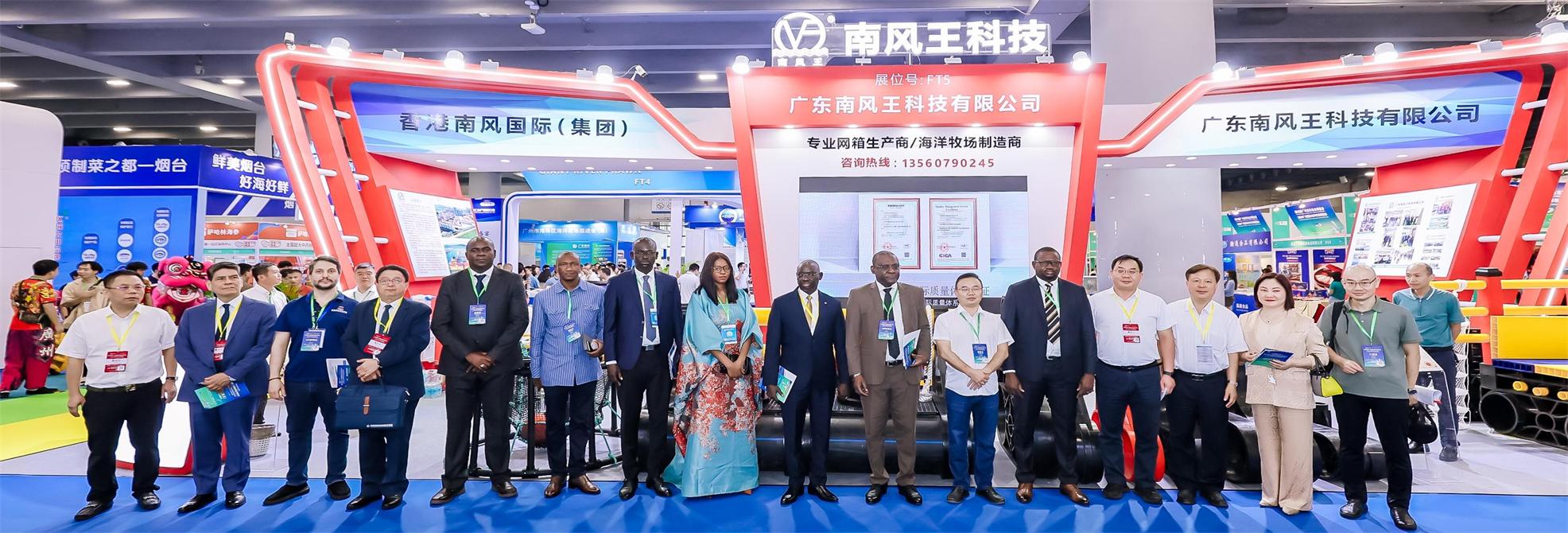Take the east wind of RCEP and make good use of the China-Vietnam Fisheries Trade Development platform ----- to visit the Commercial Affairs Office of the Consulate General of Vietnam in Guangzhou
How will we welcome the RCEP? On November 16, Xu Han, Vice President and Secretary General of Guangdong Fisheries Circulation and Processing Association, and Peng Ying, Director General of the Organizing Committee of Guangzhou International Fishery Expo, visited the Consulate General of Vietnam in Guangzhou and had in-depth exchanges with NGUYEN DUY PHU, Commercial Consul of the Consulate General of the Socialist Republic of Vietnam in Guangzhou.
Ms. Hsu Han talked with Commercial Consul Nguyen Wi Phu about the Regional Comprehensive Partnership (RCEP), a hot topic at the moment. Vietnam has signed 15 free trade agreements, including CPTPP, EVFTA and RCEP, which cover about 73 percent of the export value of aquatic products, Nguyen said. After joining the RCEP, the biggest benefit of the 15 countries (10 ASEAN countries, newly added China, Japan, South Korea, New Zealand and Australia) is the reduction of tariffs and surging trade volume. The two sides hope that the RCEP will bring more business opportunities to Chinese and Vietnamese aquatic products after it takes effect on January 1, 2022.
The two sides had an in-depth discussion on the situation of fishery trade between China and Vietnam under the epidemic situation. Nguyen Vih Phu said that China is the major export market of Vietnamese aquatic products with a large scale and promising prospects, ranking the third after the United States and Japan. In 2020, Vietnam's exports of aquatic products to China amounted to $1.17 billion, a 4.8% decrease year-on-year. Exports to China in the first half of 2021 amounted to $430 million, down 7.8% year-on-year. In 2020, the amount of Vietnamese aquatic products imported to Guangdong market was 295 million US dollars, accounting for 25% of the amount of Vietnamese aquatic products imported to China in the same period.
This shows that the export of aquatic products to China has decreased due to the impact of the epidemic.
Ms. Xu Han said that China exports a lot of aquatic products to Vietnam, such as aquatic processing equipment, aquaculture equipment, refrigeration equipment, freezing equipment, etc. The two sides reached consensus on aquatic products trade under the epidemic situation, and can hold online aquatic products matching meeting. Both sides expect that after the epidemic, the trade of agricultural products and aquatic products between China and Vietnam will have a good growth.
Introduction to RCEP:
The RCEP is an important step for countries in the region to uphold the multilateral trading system and build an open world economy with concrete actions. It is of landmark significance for deepening regional economic integration and stabilizing the global economy.
The RCEP is regarded as the largest free trade agreement in the world because it covers 2.2 billion people, accounting for about 30 percent of the world's population. Its member countries also account for about 30 percent of the global economy in terms of GDP and intra-regional trade. Statistics released by FAO show that in 2019, the total agricultural output of RCEP members accounted for about 20.1 percent of the world's total, making them an important market for agricultural trade in the world. China, Australia, New Zealand and Japan are all traditional agricultural trading powers, while most ASEAN countries are rich in agricultural resources and are important producers of rice, palm oil, coffee, aquatic products and other agricultural products in the world.






 info@gzboyi.com.cn
info@gzboyi.com.cn +86-20-66319008
+86-20-66319008